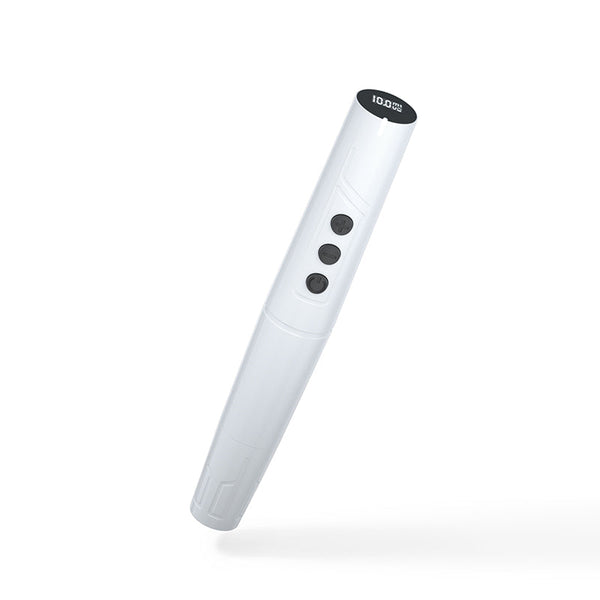Unlock the Secrets of Tattoo Supplies: Master the Art of Ink Like a Pro!
Tattooing is an art form that requires not only skill and creativity but also an in-depth understanding of the tools and materials that make it possible. Whether you're an aspiring tattoo artist or a seasoned professional, having a solid grasp of tattoo supplies is crucial for both artistic expression and ensuring the safety of your clients. From needles and machines to inks and hygiene products, the right supplies can significantly enhance your tattooing experience and the quality of your work. In this article, we will explore the various types of tattoo supplies, their uses, and essential tips to help you master the art of ink.

Understanding Tattoo Needles
Tattoo needles are pivotal in determining the outcome of a tattoo. There are various types of needles, each designed for specific purposes. For instance, lining needles are typically grouped in configurations of one to five needles, and they create clean, sharp lines. Shading needles, on the other hand, often have a larger grouping of needles to allow for smoother gradients and shading effects. Selecting the right needle for the job is essential, as it can influence the overall look and feel of the tattoo. A friend of mine who is a tattoo artist shared that choosing the right needle often involves a lot of trial and error, but understanding the basics can set you on the right path.
Types of Needles
Different needle configurations serve various purposes in tattooing. Single needles are perfect for intricate line work, while larger groupings like magnums are ideal for shading and coloring. Additionally, there are specialty needles for specific techniques, such as curved magnums for softer edges. Understanding these configurations and how they impact the tattooing process can elevate your skills and the quality of your designs.
Exploring Tattoo Machines
The type of tattoo machine you choose can drastically affect your tattooing process. There are three main types of tattoo machines: coil, rotary, and pen-style. Coil machines are often favored for their traditional feel and are known for their power and precision. Rotary machines, on the other hand, are quieter and lighter, making them easier to handle for extended periods. Pen-style machines have recently gained popularity for their ergonomic design and versatility. My friend once told me that switching from a coil machine to a rotary machine transformed her tattooing experience, allowing her to work longer without fatigue.
Choosing the Right Machine
When selecting a tattoo machine, consider your personal style, comfort, and the type of work you intend to do. Spend time experimenting with different machines to find the one that feels right for you. Factors like weight, grip, and the machine's speed can all influence your tattooing experience, so it’s worth investing time to find your perfect match.
The Importance of Ink and Pigments
Ink and pigments are fundamental to the art of tattooing, with various types available on the market. From organic inks to synthetic pigments, each type has its unique properties that can affect the tattoo's final appearance. High-quality inks tend to have better saturation and longevity, ensuring that the tattoo remains vibrant over time. A common misconception is that all inks are the same, but my tattoo artist friend emphasized that using quality products is non-negotiable for achieving the best results.
Understanding Ink Safety
When it comes to ink safety, it’s vital to use reputable brands and adhere to safe practices. Always check for certifications and ingredient lists to ensure that the ink is safe for use on skin. Avoid using inks that are not specifically made for tattooing, as these can lead to adverse reactions and health issues.
Essential Tattoo Supplies for Hygiene
Hygiene is paramount in tattooing, and having the right supplies is essential for maintaining a safe environment. Items like disposable gloves, disinfectants, and sterilization equipment are crucial in preventing infections and ensuring the safety of both the artist and the client. My friend, who has been tattooing for years, always emphasizes the importance of cleanliness, sharing stories of how a sterile environment can make all the difference in a successful tattooing session.
Setting Up a Sterile Environment
Creating a clean and sterile workspace involves several steps. Ensure that all surfaces are disinfected before starting any tattoo. Use single-use items wherever possible, and always have a designated area for your supplies to minimize contamination. Adopting these practices can significantly reduce risks during the tattooing process.
Additional Tools and Accessories
Beyond the primary supplies, there are several additional tools that can enhance your tattooing experience. Stencil paper is essential for transferring designs onto the skin accurately, while skin markers help outline the tattoo before the needle touches the skin. Aftercare products, such as ointments and moisturizers, are also crucial for ensuring that the tattoo heals properly. Having these items on hand can streamline the tattooing process and contribute to the overall satisfaction of your clients.
Mastering Tattoo Supplies for Superior Artistry
In conclusion, mastering the use of tattoo supplies is essential for any tattoo artist who aspires to enhance their skills and produce high-quality work. Understanding the different types of needles, machines, inks, and hygiene supplies can significantly impact the tattooing process and the final outcome. By investing time and effort into learning about these tools, you can elevate your artistry and ensure a safe and enjoyable experience for your clients. Dive into the world of tattoo supplies, and unlock your potential as a tattoo artist!







